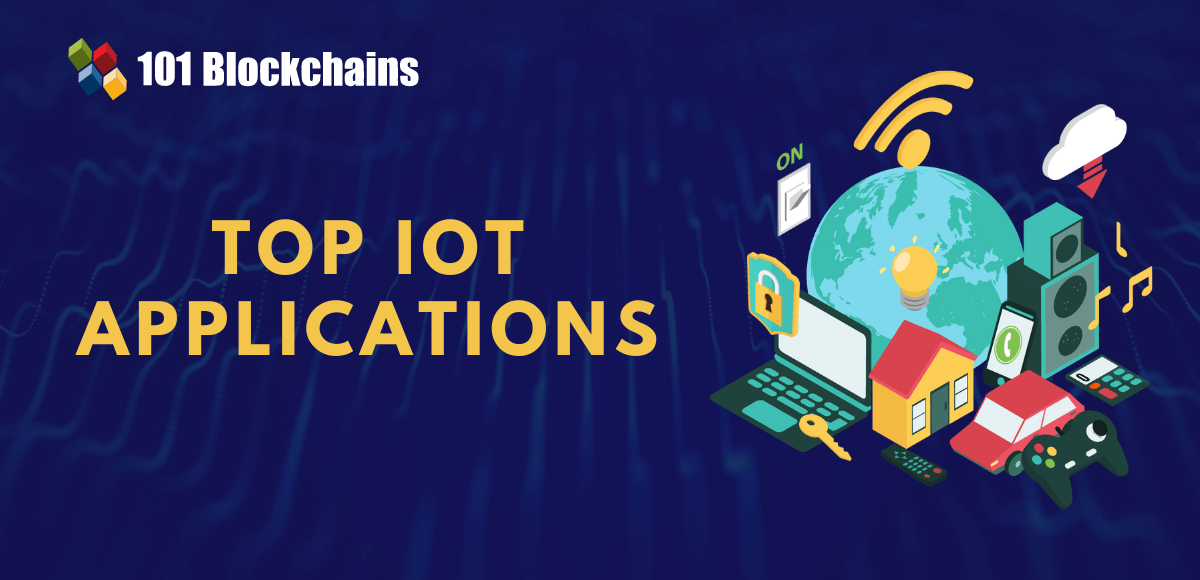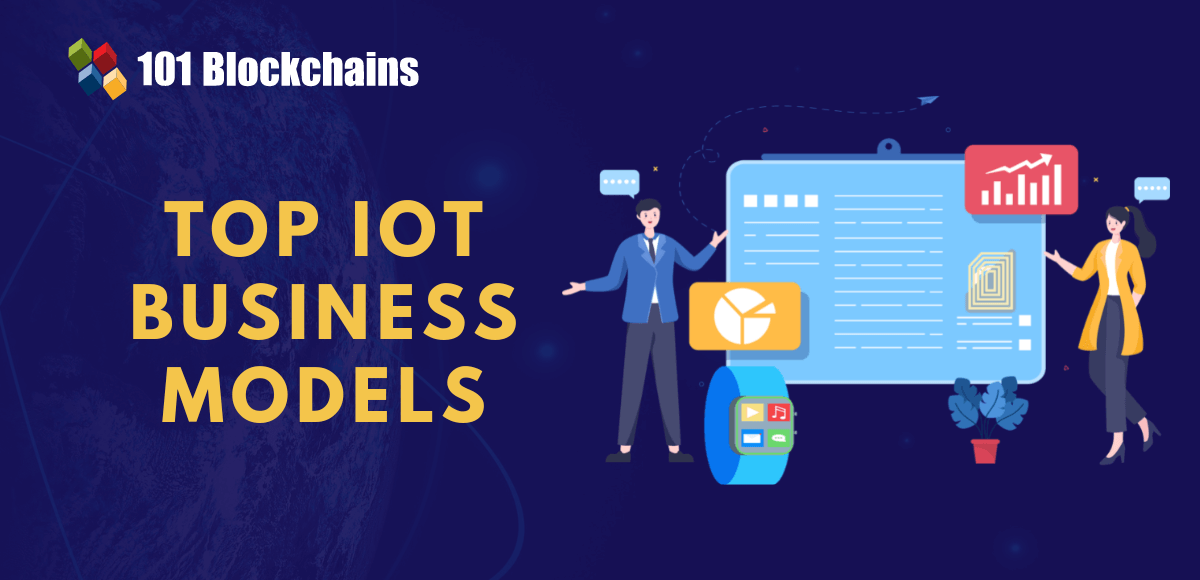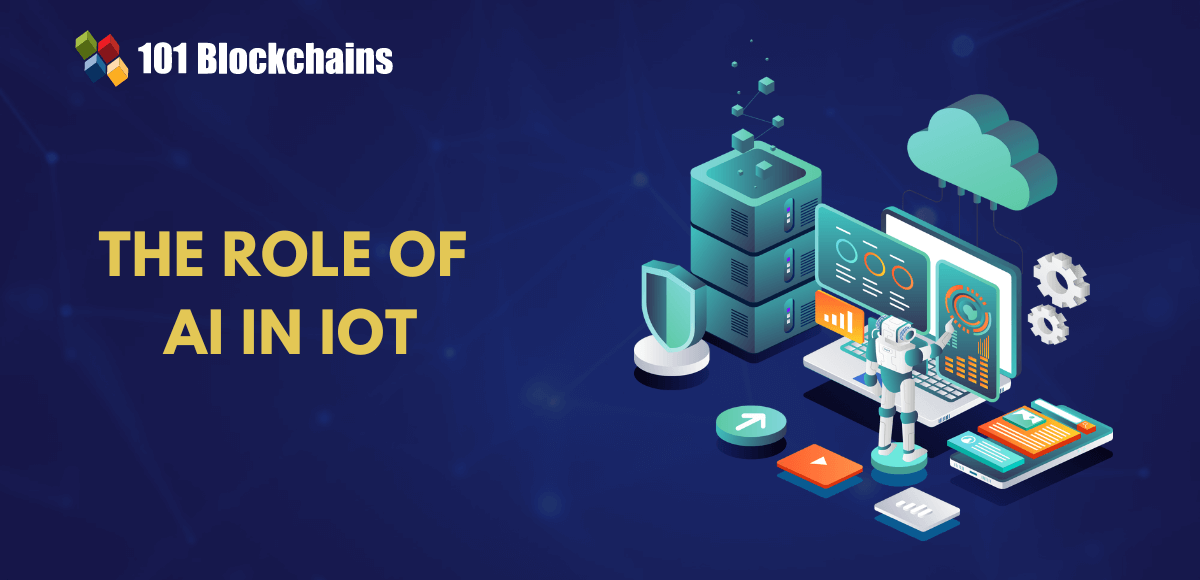Learn how blockchain truly works, master key definitions, and uncover what makes smart contracts so "smart." Dive into the fundamentals, gain valuable insights, and start your blockchain journey today!
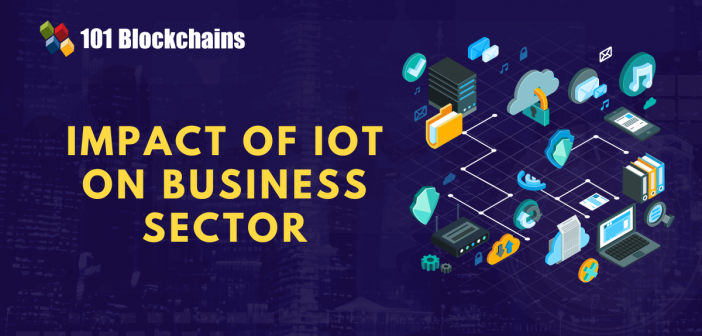
- IoT
Georgia Weston
- on March 10, 2023
The Impact of IoT on The Business Sector
The internet revolutionized communication and bridged the gaps between people due to geographical barriers. However, the introduction of the Internet of Things or IoT changed the functionalities of devices by enabling the connectivity of devices to the internet. Imagine your alarm clock is connected to the internet and has the capability to set alarms with your voice. The impact of IoT on the business sector has become one of the top priorities in the tech landscape right now.
As of now, there are more than 14 billion connected IoT devices worldwide. By 2030, the total number of connected IoT devices may reach 26 billion. Expenses on IoT solutions in 2020 reached almost $750 billion, and the expenses in 2022 reached the $1 trillion mark. Experts have drawn forecasts about global IoT spending reaching $1.1 trillion in 2023. Some of the biggest uses of IoT have been identified in the field of consumer media devices, connected vehicles, and payment terminals.
At the same time, the effect of IoT on the business sector has come into the limelight. Businesses seek new avenues for digital transformation and reliable technologies to achieve their desired objectives. How will businesses use IoT? What are the prominent value advantages and risks for businesses with IoT? How will different business sectors use IoT? Let us find the answers to these questions in the following guide on the impact of IoT in the domain of business.
Definition of IoT
The definitions of IoT have been changing over the course of years with multiple perspectives on the technology. In the simplest sense, IoT refers to a network of interconnected devices that can work on data collection and exchange with each other through the internet. The “Things” in IoT refer to the devices such as sensors, smart refrigerators, smart home systems, cameras, and fitness trackers.
Almost any device which can connect to the internet could be used as a “thing” in IoT networks. The magnitude of IoT’s impact on business growth is clearly evident in the opportunity for leveraging data. The direct correlation between sensors and the real-time exchange of data can enable businesses to make faster decisions.
Impact of IoT on Businesses
The answers to “What does IoT mean for businesses?” would point to the different ways in which IoT revolutionizes businesses. A clear overview of the transformative influence of IoT on different aspects of business operations could help you understand the responses. Here are some of the notable ways in which IoT has influenced business practices.
Want to understand the fundamentals of the Internet of Things (IoT)? Enroll Now in IoT Fundamentals Course!
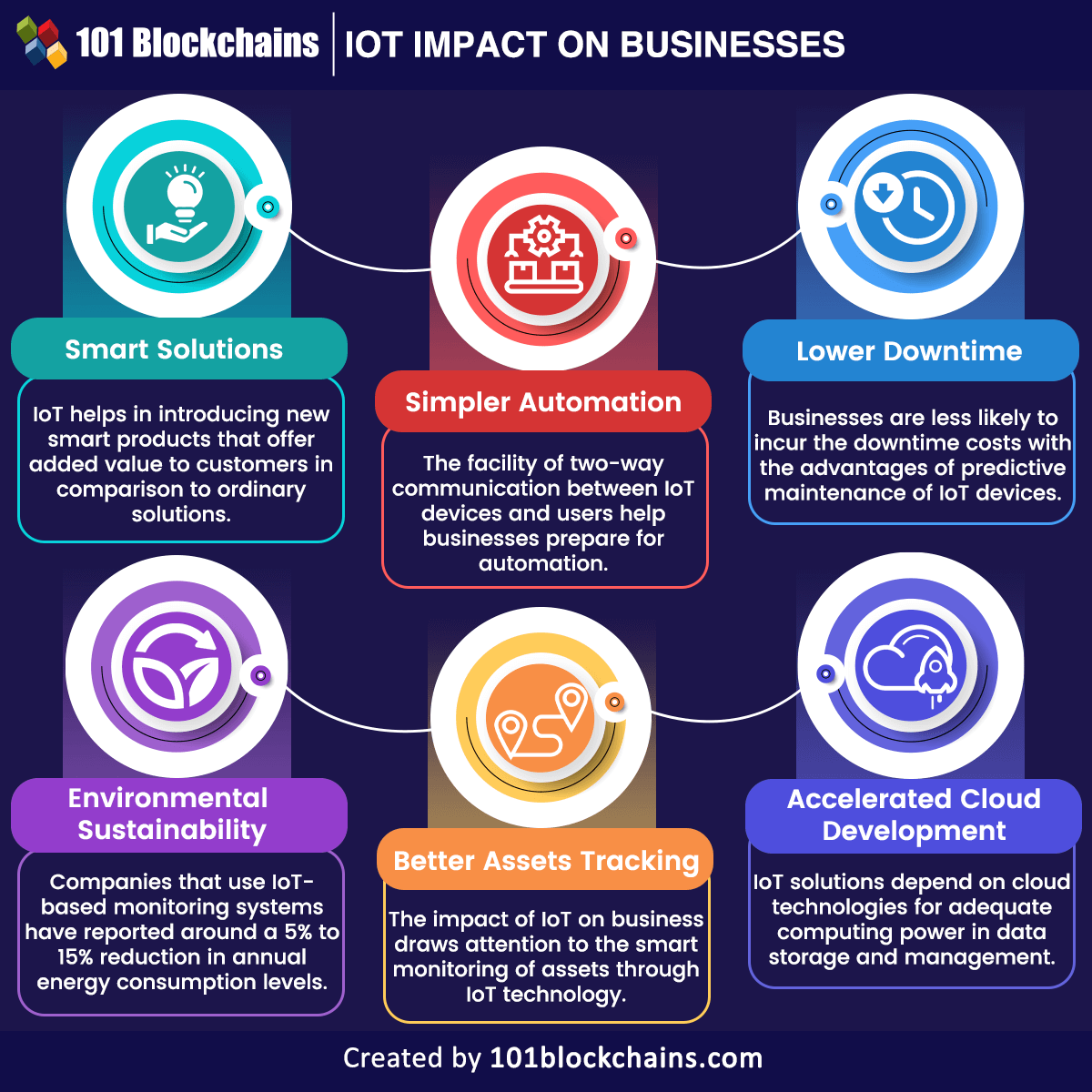
Please include attribution to 101blockchains.com with this graphic. <a href='https://101blockchains.com/blockchain-infographics/'> <img src='https://101blockchains.com/wp-content/uploads/2023/02/IoT-Impact-on-Businesses.png' alt='IoT Impact on Businesses='0' /> </a>
-
Smart Solutions
The foremost entry among the benefits of IoT in business is the inclusion of smart solutions. IoT helps in introducing new smart products, which help in achieving enhanced versions of existing technical solutions. First of all, smart products and services can help in obtaining accurate information about the real-time usage of devices.
As a result, businesses can discover suitable opportunities for refining their solutions in accordance with customer requirements. In addition, IoT can help manufacturers introduce new features that offer added value to customers in comparison to ordinary solutions. For example, smart robot vacuum cleaners and weighing scales show how IoT can change simple products into futuristic gadgets.
Want to familiarize yourself with the technology stack associated with IoT? Enroll Now in Internet Of Things (IoT) – Intermediate Level Course!
-
Simpler Automation
The next crucial impact of IoT on business refers to the simplification of the automation process. People could implement remote control for devices in the IoT system alongside modifying their configuration and state. On the other hand, the devices could provide notifications and alerts to the users through messages.
With the facility of two-way communication between IoT devices and users, automation processes would become easier. On top of it, the possibility of combining IoT and Robotic Process Automation could help businesses prepare for the next stage of automation. The different stages in supply chain management, including retail shops or warehouses, could leverage the benefits of automation through drones and IoT technology.
Start learning IoT with World’s first IoT (Internet Of Things) Skill Path with quality resources tailored by industry experts Now!
-
Lower Downtime
The discussions on IoT impact and challenges for businesses also focus on how IoT devices can lower downtime. The Internet of Things has offered plausible improvements in preventive maintenance practices with IoT sensors monitoring the health of different components of devices.
IoT technology can offer real-time insights into asset health, usage, and risks of failure, thereby ensuring proactive maintenance. Therefore, businesses are less likely to incur the costs of downtime and repairs with IoT-based monitoring systems offering ideal schedules for maintenance. The advantages of predictive maintenance could facilitate the efficient creation of high-value equipment.
-
Environmental Sustainability
The effect of IoT on businesses would also introduce possibilities for better environmental sustainability. Companies that use IoT-based monitoring systems have reported around a 5% to 15% reduction in annual energy consumption levels. The influence of IoT on the business sector with smart devices could help in avoiding resource leaks. At the same time, IoT could also support the identification of effective methods for smoother operations of machines.
Some forecasts have suggested that the influence of IoT on energy consumption will be massive, with almost 1.8 PWh of electricity savings in 2030. Smart electricity grids can set the next frontier for power distribution and efficient power usage. The business challenges in IoT can be put to rest with new opportunities for effective waste management. The necessity for businesses to emphasize sustainability calls for potential applications of IoT.
Want to learn how you can use blockchain in the Internet of Things (IoT)? Enroll in Getting Started with Blockchain And IoT Course Now!
-
Accelerated Development of Cloud
The growth of IoT would also fuel the expansion of cloud technologies. IoT solutions depend on cloud technologies for the infrastructure required to process massive volumes of data and store them. Cloud technologies are an integral aspect of IoT architecture, and the popularity of IoT has created a demand for developing cloud technologies. Most important of all, IoT applications also invite parallel growth of analytics, thereby pointing towards the need for adequate computing power in data storage, management, and analysis within the IoT ecosystem.
-
Better Tracking of Assets
The benefits of IoT in business could provide improved efficiency in automation and better user experiences. What special advantages does IoT has in store for businesses? One of the most profound answers to such questions is the option for real-time asset tracking. Businesses could use IoT sensors such as Radio Frequency Identification or RFID tags for tracking their assets.
Whether it is a computer used in the office or a product traveling through the supply chain, businesses will have a clear view of where their assets are. The impact of IoT on business draws attention to the smart monitoring of assets through IoT technology. For example, RFID tags could have smart labels featuring detailed product information.
The influence of IoT on businesses shows how IoT could provide value-based advantages to businesses. The responses to “What does IoT mean for businesses?” would emphasize how it reduces operating costs and improves efficiency. For example, the simplification of automation workflows alongside real-time asset tracking and smart monitoring capabilities with IoT can improve business productivity.
Most important of all, IoT solutions can help businesses in tracking, monitoring, discovering, and analyzing customer data at unbelievably fast rates. Therefore, businesses can use IoT to adapt their products and services to customer requirements and changing trends in consumer behavior.
Curious to know about learning resources for blockchain IoT? Check the detailed guide Now on What’s The Best Blockchain IoT Skill Path For Me?
Challenges for IoT in Businesses
The business challenges in IoT are also an important aspect in guides regarding the potential of IoT for businesses. An overview of the challenges for IoT implementation in businesses is essential for obtaining a balanced perspective on business use cases of IoT. Here are some of the notable challenges in the implementation of IoT for businesses.
-
Data Security and Privacy
IoT networks are a treasure trove of sensitive user data, thereby creating a vulnerable target for hackers. The overview of IoT impacts and challenges in data security and privacy point to the difficulties in storing and exchanging data among IoT devices. Cybersecurity is an important priority for IoT networks, with safeguards against hardware-based attacks, physical tampering, network-based attacks, and online attacks.
On top of it, the integration of encryption and security protocols across a massive network of IoT devices can impose a humongous cost burden on businesses. At the same time, businesses must also address the need for compliance with data privacy regulations. The emphasis on the effective use of patient privacy laws in healthcare and finance points to significant challenges for IoT adoption.
-
Integration and Early Setup Cost
The two most significant business challenges in IoT include how to use IoT with existing business systems and the initial costs required to set up the IoT network. The lack of consensus for IoT protocols and standards creates problems in the integration of devices. For example, the configuration and hardware connections required for each device could be different from another.
The technical complexity in deploying IoT devices for businesses and comprehensive assessment of networks needs additional demand time for deploying devices. Furthermore, the challenges of IoT impact on business also draw attention to the cost involved in the initial setup.
Businesses have to invest a considerable amount of time and money in deploying IoT devices. Starting from the purchase to the configuration and deployment of multiple IoT devices, businesses would need a substantial initial investment to reap the returns of cost-efficient operations.
Want to know how blockchain can benefit the IoT sector? Check the presentation Now on Blockchain With IoT – Top Blockchain IoT Use Cases
How are Businesses Using IoT in Different Industries?
The overview of notable benefits and challenges of implementing IoT for businesses proves how IoT can offer value-based advantages. However, businesses must also be wary of the prominent challenges in deploying IoT devices. The balanced perspective on the influence of IoT on the business sector creates curiosity regarding the real applications of IoT. Let us take a look at how businesses in different sectors leverage the Internet of Things technology for innovative value advantages.
-
Agriculture
The most noticeable sector using IoT right now is agriculture. The agriculture industry has embraced IoT at a rapid pace, with the agriculture IoT market expected to be worth $30 billion by 2030. You can find common responses to “What does IoT mean for businesses?” with different examples of smart agriculture applications.
Smart agriculture applications use IoT for collecting environmental data and evaluating agricultural equipment metrics. Real-time IoT data can support farmers in making informed decisions for every aspect of their work. Some of the notable examples of IoT use in agricultural businesses include cattle monitoring, greenhouse automation, and climate monitoring.
-
Finance
The applications of IoT in finance can drive new roads toward the personalization of customer experiences. Customers want to access the financial services of banks through connected devices. The growing volume of financial data in the domain of IoT has created better opportunities for financial businesses to obtain accurate measurements of risk.
In addition, the benefits of IoT in business for data collection through sensors and data analytics could support personalization. Financial service providers can use IoT networks to improve the way banks understand the usage and expenses of clients. Users could develop good habits for financial management, and banks could introduce innovative features such as interactive credit cards.
-
Healthcare
Healthcare systems are one of the most prominent examples of leveraging the impact of IoT on business with better services to users. IoT technology in healthcare includes solutions such as tracking systems and real-time healthcare systems. The discussions on IoT impacts and challenges in healthcare focus on how IoT improves real-time patient health monitoring and equipment maintenance. IoT can offer the benefits of reduced costs to patients, remote monitoring of patient health, and medical asset management.
Curious to learn about blockchain implementation and strategies in businesses too? Enroll Now in Blockchain Technology – Implementation And Strategy Course!
Final Words
The outline of the different aspects of implementing IoT on the business sector reveals clear insights into the potential of IoT. The Internet of Things could help businesses revolutionize manufacturing, distribution, marketing, and advertising their products. Most important of all, the advantages of real-time data monitoring offer significant advantages for businesses to reach proactive decisions faster.
The effectiveness of IoT in different sectors such as healthcare, agriculture, retail, and hospitality proves the transformative impact of IoT. At the same time, businesses cannot ignore the challenges of IoT’s impact on business operations. Therefore, a comprehensive evaluation of network needs alongside effective planning of investments in IoT projects is essential for IoT adoption. Learn how businesses could leverage IoT through effective tools and new business mode designs.




